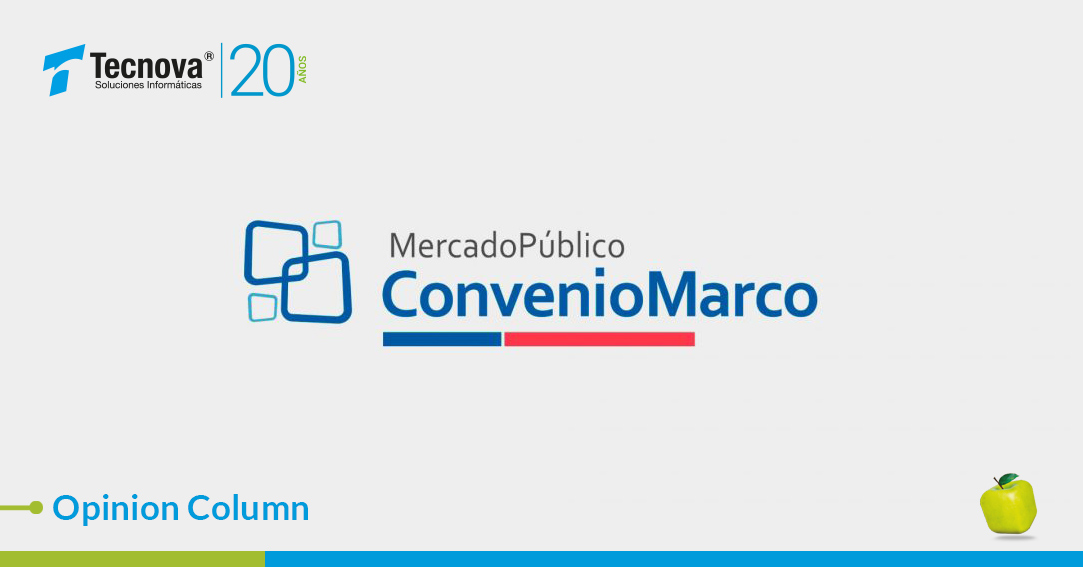New Convenio Marco for IT companies: Between Roosters and Midnight

On January 10th something surprising happened for our industry: The Directorate of Procurement and Government Procurement, ChileCompra, in accordance with the powers granted by Law No. 19.886, called Public Tender, for the subscription of a Convenio Marco (CM), so that companies and institutions of the State can acquire services for the development and maintenance of software and professional services IT.
Regarding the category of Software development and maintenance projects, tender number 2239-4-LR20 considers services for “development of a software product from the definition of the initial requirement to its final implementation, using software development methodologies, techniques/good development practices and programming languages”.
In the case of the subcategory of professional IT services, they must respond “to IT needs through the outsourcing of tasks or functions alluding to the design, maintenance or management of IT resources, IT systems, technology platforms and consulting tasks or specialized services in the IT field”.
These requirements are typical. However, looking at the tender in detail, there are a number of requirements that have reduced this agreement to its lowest expression. Take, for example, the criteria for bid evaluation: In this new CM, in the technical evaluation there is a 60% weighting in the criterion “experience in the field”. Within this criterion, to have a 100 score, you need to credit 25 or more successful projects and different clients in 36 months. However, today, to validate experience and accredit those customers, they have to connect to and complete a form. In this summer season, where it can only be applied until February 21; How do you validate those customers and that experience if they’re on vacation?
On the other hand, let’s think about companies that were founded one or two years ago, will they have 25 certified projects. and with 25 or more different customers? Will they have 5 certifications at the company level? In this scenario, because of the amount of experience, customers and certifications requested, few companies with these characteristics will pass the cut of 50 points in the technical criteria. Indeed, we understand that experience should be sought, however, companies with little experience should not be left out, because perhaps they are precisely enabled for smaller projects. For example, if an institution wants a simple project, it won’t be interested in hiring a large IT company because of the costs involved. And if a startup-type company can do it, why not give it a try?
Another concern we have in this new Convenio Marco is the range of direct purchases. If in previous tenders the tranches were between 0 and 1000 UTM, this new agreement reduced the cut from 10 to 500 UTM. The possibility of large purchases above 500 UTM was eliminated. Now, they can only be made on a basis of type tenders, where everyone, not just those remaining in the Convenio Marco, can participate. However, within this new CM, by shortening the shopping leg, it reduces the number of projects or services to be contracted, with an administrative burden and higher costs, since they require administrative agreements, with guarantee ballots for each purchase. And, in this scenario, there is another incentive in the purchase, which are the offered discounts. In this CM, there are 3 discount ranges for the purchase legs. The tender indicates that all discounts offered by the supplier must be equal to or greater than 2%. In this case any undiscounted offer is discarded. What is the point of doing so today, if you can do it in the same procedure of the agreement, with additional discounts?
To sum up, an opportunity to improve the Convenio Marco is wasted, with the option of being tendered on unpublished types in purchases over 500 UTM.
As a conclusion, there are many entry barriers to be selected, which reduces the number of providers that will be able to enter the CM.
As an integral part of Chile’s software companies, we believe that it is necessary to generate a strong and competitive industry, which is projected globally, with state support, with better options to compete. Tecnova itself has won recognition such as Oracle OpenWorld 2019 for the PAE project of the Superintendence of Social Security (SUSESO). We are in a scenario where you can make interesting projects, with purpose and public sense. However, we are concerned that it is the state itself that is reducing the potential for competition.
Alex Lagos
CEO
Tecnova IT Solutions








